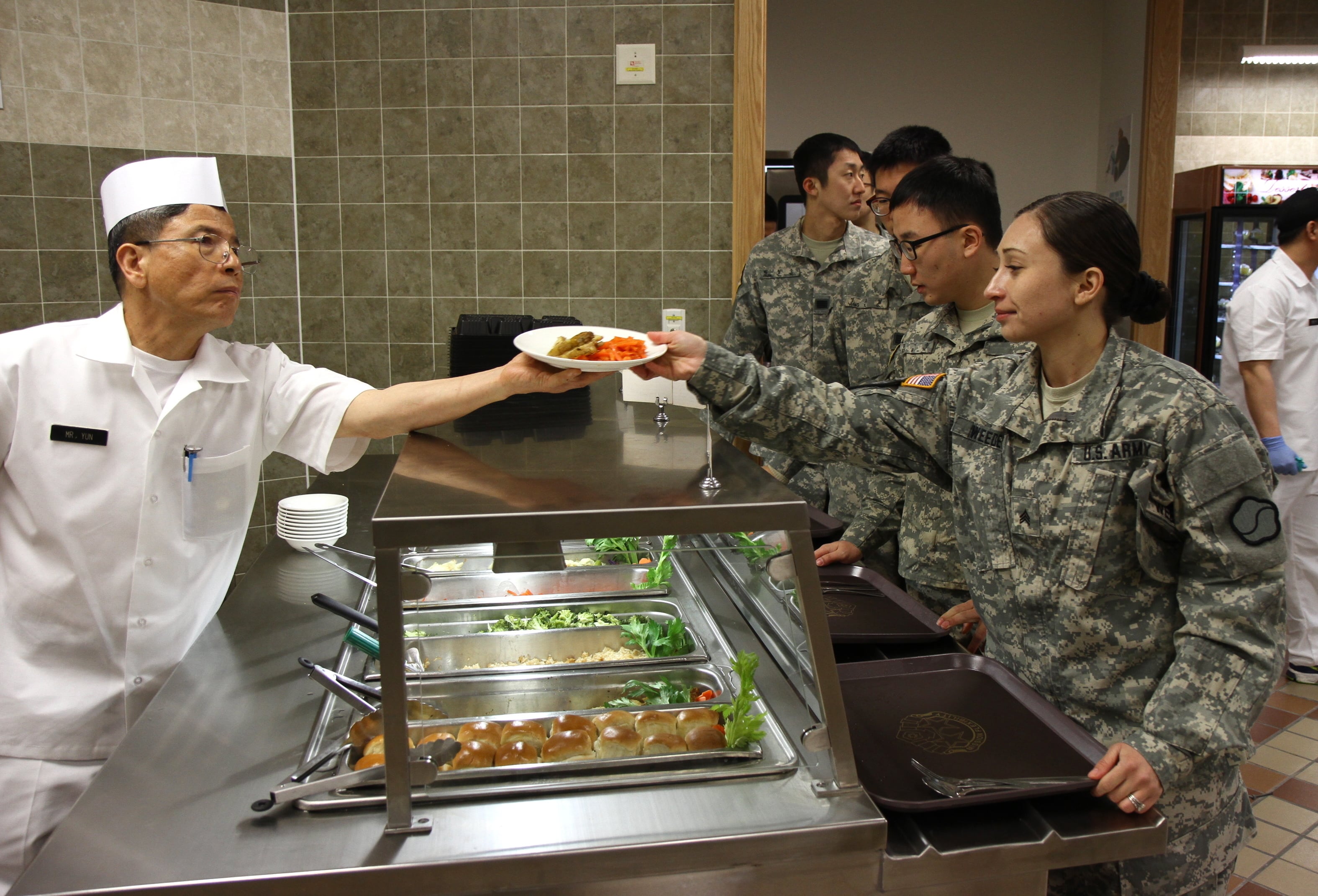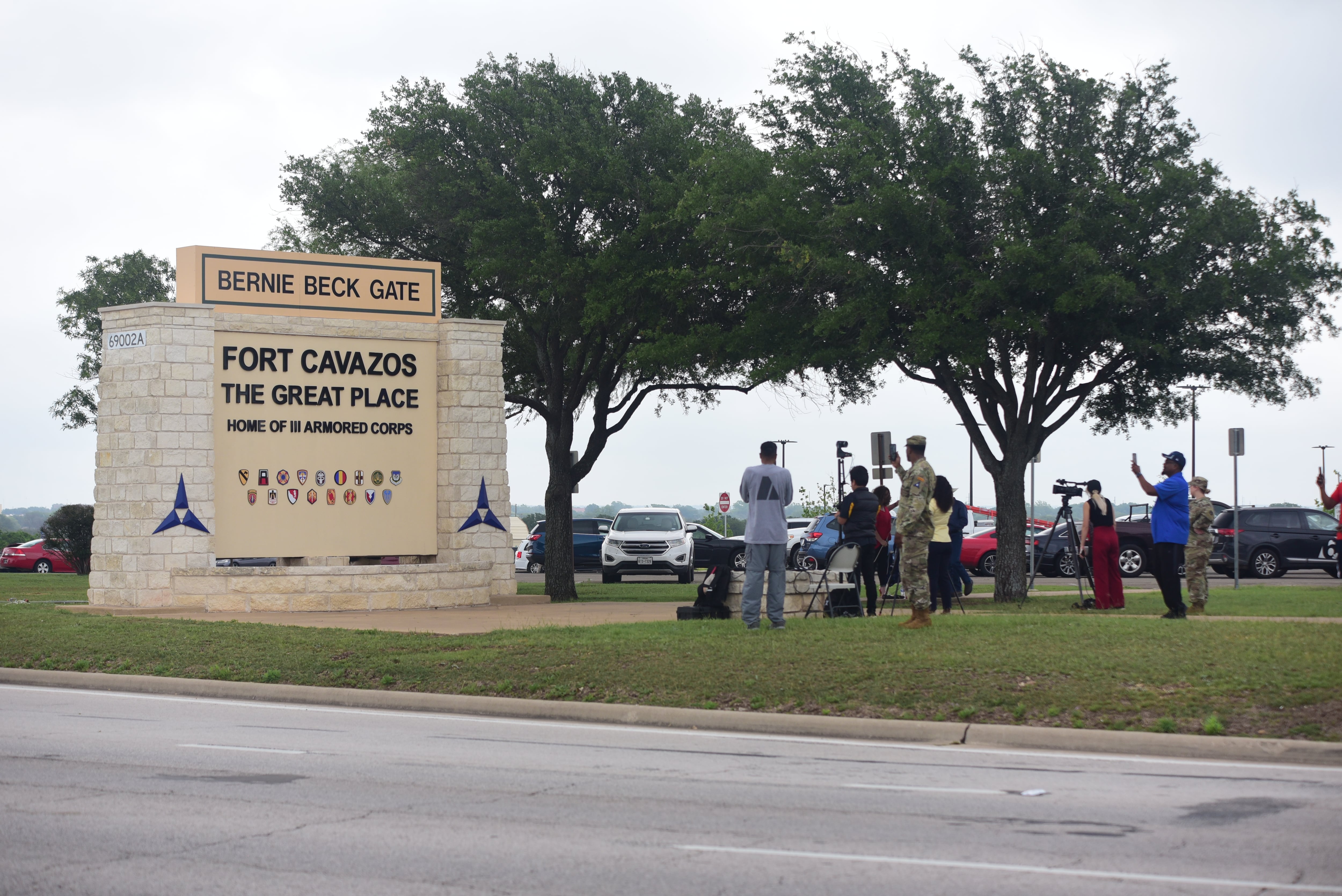Army officials are promising to review rules surrounding the Basic Allowance for Subsistence stipend following additional reports that service members are being forced to pay for meals they will not or cannot eat.
The latest complaints come from an anonymous chaplain at Fort Cavazos in Texas, who reported that soldiers there are having funds deducted from their food allowance for daily meals even when local officials cannot provide religious accommodations.
“We have had Jewish, Muslim, Hindu, Buddhist, and Christian [soldiers] request to reclaim their BAS due to the fact that the dining facility on the military installation cannot provide them meals in accordance with their faith tradition,” the chaplain wrote in a letter provided by the Military Religious Freedom Foundation.
“This forces soldiers to essentially pay twice for food: once for the BAS that they cannot reclaim and the second for the money they are forced to use to purchase food to prepare for themselves. For many junior service members, that causes financial hardship at home station.”
RELATED

In a letter to base officials last week, MRFF president Mikey Weinstein said the refusal of leaders to refund the money amounts to “a wholly unconstitutional and repugnant pattern and practice of universal denial of guaranteed religious expression.”
In response, Bryce Dubee, a spokesperson for the Army, said the service is now working with Defense Department officials to fix those problems.
“We value and respect the diverse religious beliefs of our soldiers,” he said in a statement. “In situations where consuming meals in a [dining facility] poses challenges due to religious restrictions, commands work with soldiers individually to find a suitable accommodation where one exists.
“We acknowledge, however, that there may be some soldiers where current policy limits the Army’s ability to accommodate their religious dietary needs. Based on concerns that Fort Cavazos raised previously, the Department of the Army is working directly with the Department of Defense to update the current DoD Basic Allowance for Subsistence policy to fully accommodate service members with religious dietary restrictions.”
The move comes one week after congressional lawmakers said they were looking into the issue of how the Basic Allowance for Subsistence is handled after an open letter on the issue from a company commander in South Korea raised concerns about administration of the stipend.
Similar to the Fort Cavazos situation, soldiers deployed in South Korea see nearly all of their BAS funds deducted to pay for food provided at dining halls, regardless of whether troops can actually access and eat those meals. The situation can cause significant financial inflexibility, especially for junior troops with low annual salaries.
Last summer, Army leaders came under criticism for docking the stipend during some soldiers’ field training events, causing them financial issues.
In the Fort Cavazos case, married soldiers are not having their BAS allotment deducted for meals but unmarried service members are, creating an unfair disparity between the two groups. Fort Cavazos officials did not respond to requests for comment and directed all questions to the Army’s public affairs office. Dubee did not say when changes to the policy may be put in place.
Weinstein said he believes that local commanders can order refunds if they so choose, but so far have not opted to do so. Instead, he said soldiers are being forced to “literally pay for food they are not permitted to eat as a result of their devout personal religious beliefs.”
Lawmakers have said they hope to address the issue as part of the annual defense authorization bill debate later this year, but any such legislative fixes likely won’t go into effect until early 2025.
Leo covers Congress, Veterans Affairs and the White House for Military Times. He has covered Washington, D.C. since 2004, focusing on military personnel and veterans policies. His work has earned numerous honors, including a 2009 Polk award, a 2010 National Headliner Award, the IAVA Leadership in Journalism award and the VFW News Media award.




